The introduction of delta-8 THC onto the scene in America has meant a different offering of THC, and a new legal predicament. Delta-8 has mainly been a US phenomenon, but as word spreads, so does THC. Here’s a look at Delta-8 THC and the UK, to see how the word of delta-8 is spreading so far.
Delta-8 THC might be most popular in the United States, but as the rest of the world catches on, the industry is sure to blow-up quickly. The best part about delta-8 THC is that it gives users options. Many people like the lower psychoactive effect, and significantly less anxiety and paranoia. If the term ‘delta-8 THC’ is still new to you, check out these great Delta-8 THC deals to try the newest form of THC out there.
The UK and cannabis laws
Before getting into delta-8 THC specifically, and how relevant it is in the UK, let’s remember that delta-8 is still cannabis (or hemp, to be exact). And the UK does have very particular cannabis laws.
Cannabis law is governed by the Misuse of Drugs Act in the UK, and has been illegal as per this legislation since 1971. It is a class B drug under this law. In 2004, it was actually changed to a class C drug, before being moved right back to class B in 2009. Class B drug possession crimes result in up to 5 years in prison, an unlimited fine, or both. For small amounts, cops are more likely to issue a ₤90 on-the-spot fine.
Drug penalties are dependent on different factors, like how much cannabis the person had, where the offender was found with the cannabis, personal history, and whatever other relevant factors are present. Drug policies in the UK were reviewed in 2019, but sadly, no change was made at that time to cannabis scheduling or penalties. So to be clear, the UK has no actual decriminalization policy for small amounts of cannabis.
Click HERE for the best Delta 8 THC deals, coupons and discounts
For selling/supply crimes, the sentence can be as high as 14 years with an unlimited fine, or both. The highest sentences are saved for large-scale operations, with smaller offences considered the same way as possession crimes, by looking at the amount the person is caught with, their history, and what the supply plan was. The amount an offender is caught with correlates to the ‘category of harm’. 200 kilograms or more is considered Category 1, 40 – 200 kilograms is Category 2, six – 40 grams is a Category 3 crime, and 100 grams or over is Category 4.
Personal cultivation is illegal in the UK, but medical cannabis cultivation is legal, along with medical cannabis which was legalized in 2018. In the country, the medical cannabis program is rather limited, offering only three pharmaceutical products, and an inability for home cultivation. As of yet, very few licenses have been given out, making cannabis medicines hard to obtain for citizens.
Conversely, and weirdly similar to many African countries, the UK has been growing medical cannabis for exportation, in 2016 growing as much as 95 tonnes according to the UN, exporting 2.1 tonnes, which was considered the highest amount for legal cannabis that year, comprising 67.7% of all legal cannabis exports for the year. That last part is a bit confusing though, as the majority of the production is actually being done by GW Pharmaceuticals, which happens to be based out of England.
Delta-9 THC
By now it’s pretty well-known that THC (delta-9-tetrahydrocannabinol) is the main psychoactive cannabinoid in cannabis plants. It appears in greater quantities in some plants, which are called marijuana, and is found significantly less in other cannabis plants, which are referred to as hemp. The chemical formulation for THC is C21H30O2. THC has been demonized for years, and even today is often thought of as only a compound to produce a high, while its medicinal benefits are often overlooked.
This study from 2019, The Association between Cannabis Product Characteristics and Symptom Relief sheds light on the necessity of THC more than other cannabinoids for symptom relief. It is, of course, THC which specifically sits in Schedule I of the Convention on Psychotropic Substances treaty, and likely the main reason that cannabis as a whole, is still in schedule I of the Single Convention on Narcotic Substances. These two UN treaties, regulate the global legality of cannabis.
Of course, we’re not talking about standard THC, but rather delta-8 THC, which is an isomer of delta-9. So, what’s the difference? Not a whole lot. Delta-9 THC comes from THCA, or tetrahydrocannabinolic acid. THCA is the most abundant cannabinoid, and must be decarboxylated to become the delta-9 THC we’re familiar with. This happens when a carbon atom is removed from a chain with the release of a carbon dioxide molecule (CO2), and usually happens when cannabis is heated, or over the course of time.
Click HERE for the best Delta 8 THC deals, coupons and discounts
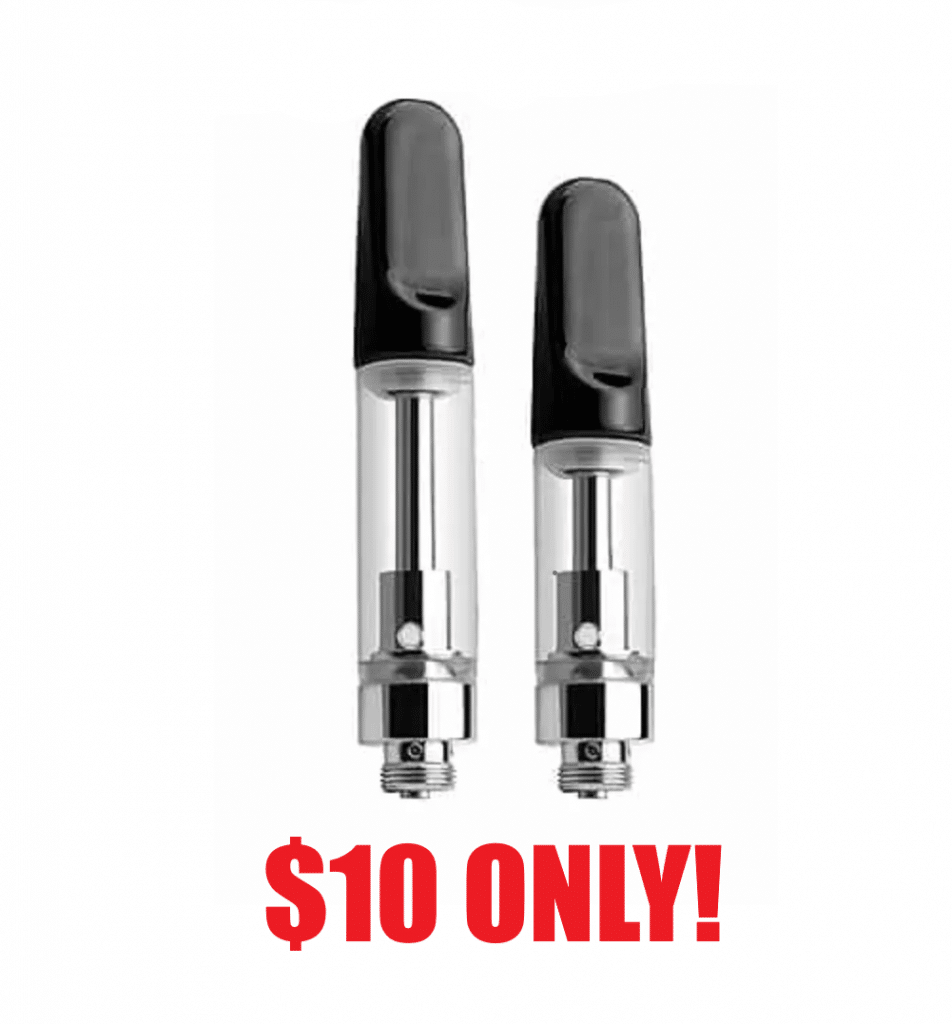
Delta-8 THC
Once it becomes delta-9 THC, a small proportion will oxidize (lose electrons) to form delta-8 THC. Since delta-8 THC comes from an oxidation process, it’s actually very stable when exposed to air, giving it an advantage over other cannabinoids like delta-9, which is not as stable due to oxidation.
While the previously mentioned statement is a proponent for delta-8 use, one of the major drawbacks in the miniscule amount found. After decarboxylation, delta-9 can account for up to 30% of some strains, whereas after oxidation, the resulting delta-8 THC generally only amounts to about 1%. In order to use delta-8 THC, it has to be a refined concentrate, sourced from delta-9. There has not yet been much research into delta-8 THC, but preliminary findings suggest that the psychoactive effect is approximately 50-75% less potent, and that it has shown to produce less anxiety in users, with a cleaner, clearer high. In fact, it is even said to heighten senses and perception in users.
In terms of medical benefits, the US National Cancer Institute defines delta-8 as an analogue of delta-9, and attributes it to medical properties like nausea and vomiting prevention (antiemetic), fighting anxiety and panic (anxiolytic), as a pain reliever (analgesic), as an appetite stimulator, and in preventing nerve cells from damage (neuroprotective). If you thought delta-8 was new, well, it’s not. Raphael Mechoulam, the guy who isolated THC in 1964, used delta-8 THC in research back in 1995, when he administered it to eight children with cancer who had been receiving chemotherapy. The delta-8 THC completely eradicated vomiting in the children.
Delta-8 was partially synthesized in 1941 by Roger Adams, with total synthesis complete by 1965. In terms of legality in the US, its main home, there is confusion and debate. Since delta-8 THC can be processed from either high THC marijuana, or low THC hemp, the production of it doesn’t have to break laws as it can be sourced from hemp. Under the 2018 US farm bill, this would afford it some legality. On the other hand, in August 2020, the DEA released an Interim Final Rule on hemp and hemp derivatives, stating “[a]ll synthetically derived tetrahydrocannabinols remain schedule I controlled substances.” As delta-8 THC might be termed ‘synthetically derived THC’, this would indicate it’s not legal.
Delta-8 THC and the UK
Delta-8 THC is so far a mainly US product with not as much popularity in the UK. One of the things we know about drugs though, is that when there’s a good one, it tends to gain popularity worldwide. So, it’s not surprising that the topic is being raised. When it comes to delta-8 THC, the UK government’s ‘Drug licensing factsheet: cannabis, CBD and other cannabinoids’ makes no specific mention of delta-8 THC.
It doesn’t come up as either of the two possibilities: ‘exempt product’ or ‘controlled substance’, which would determine legality and usage ability. This means there isn’t a regulated market for delta-8 THC in the UK, since the UK has no guidelines for it, and any delta-8 THC products bought in the UK, are unregulated with uncertain quality.
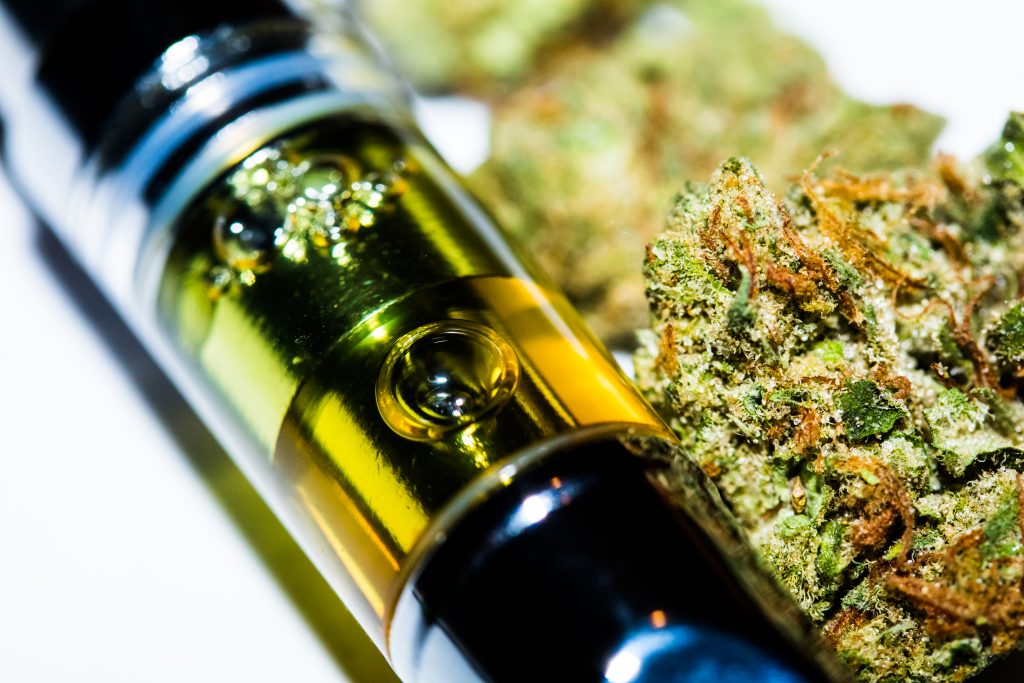
A quick internet search provides plenty of UK options for buying delta-8 THC products, regardless of regulation (it’s probably good to remember that recreational cannabis is also not regulated in most of the world, which hasn’t stopped global populations from smoking it without incident.) So, unlike standard marijuana, it isn’t being expressly illegalized, but without a legal grounding point, it’s a part of a plant that is technically illegal.
In the same way that the legal quandary exists in the US, it does in the UK too. The UK allows the production of hemp so long as the maximum THC level is .2% or less, which would indicate delta-8 can be legal as long as it’s sourced from these plants. On the other hand, THC is illegal, which would work to count it out. Perhaps, at some point, if regulation doesn’t change by the government, this might come to a head in court.
One of the interesting things about looking into the legality of delta-8 THC in the UK, is seeing all the questions being asked about it in forums. This can be seen in threads like these from Reddit, going back a few years, about legality and supply of delta-8.
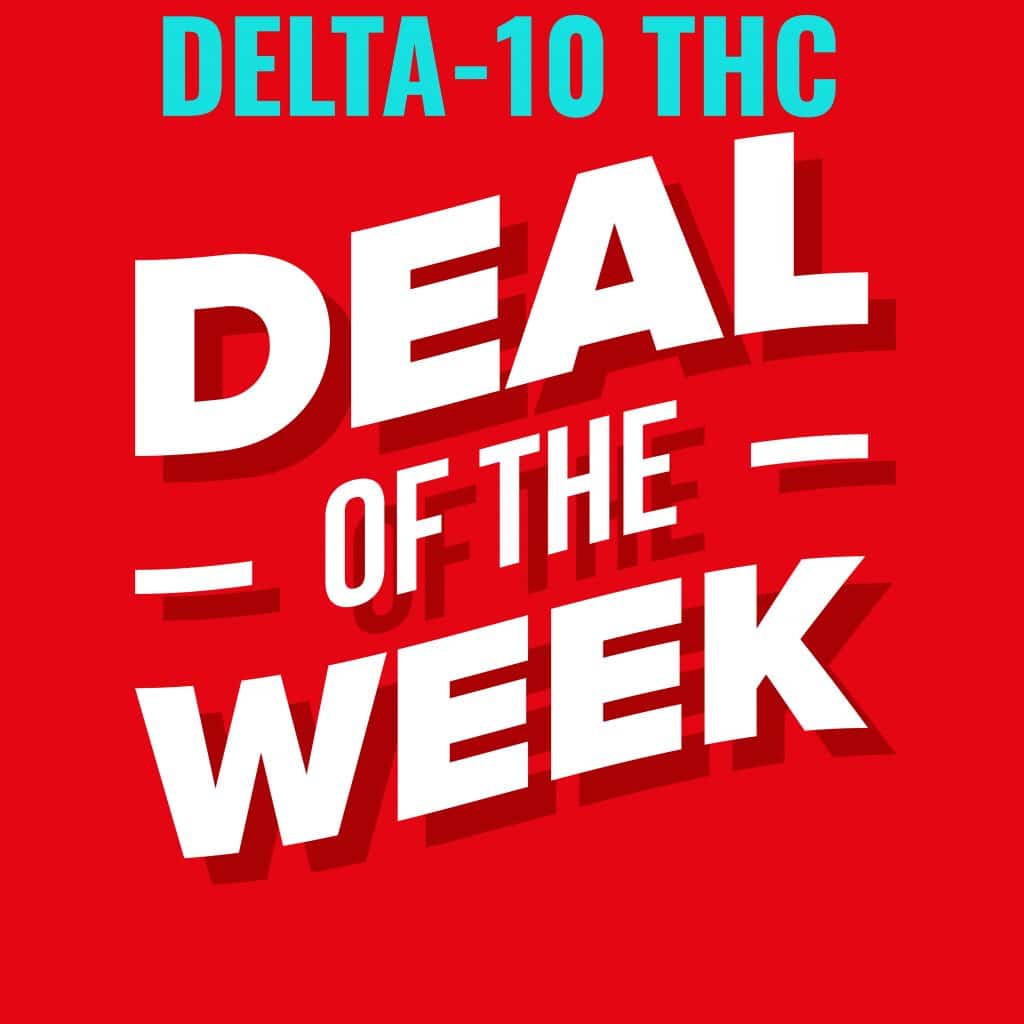
Conclusion
Delta-8 THC has been very slowly making its way toward the mainstream in the US, and hasn’t caught on as quickly in the UK. But no matter where it is now, it could be a whole new world by the end of 2021. Considering how quickly new trends can catch on, I’d stake a bet that within a year from now, some pharmaceutical company will have created a product that pushes delta-8 toward affirmative legality. In fact, unless it can be easily processed by users, it’s probably a great pharmaceutical investment. I expect it will have quite the global name for itself within the next couple years, in the US, the UK, and everywhere beyond.
Hello and welcome to CBDtesters.co, your #1 spot for all cannabis-related news from around the globe. Come by frequently to stay up-to-date on the exciting world of legal marijuana, and sign up for our newsletter so you always know what’s going on!
Resources
What Medical Conditions Could Benefit Most from Delta 8 THC?
Delta-8 THC Exploits Fantastic Legal Loophole
Is Delta 8 THC Legal in Your State?
Investing in Delta 8 THC Flowers – Is It The Right Move For Your Business?
What is DELTA 8 THC (FAQ: Great resource to learn about DELTA 8THC)
Delta-8 THC Contaminated Products, or Just Bad Press?
Can Delta-8 THC Make You Fail a Drug Test?
The CBD Flowers Weekly newsletter (your top resource for all things smokable hemp flowers). Hemp-Derived DELTA 8 THC Products Now Available Online Best Delta-8 THC Vape Bundles – Winter 2021
New Vaping Bill: Effective March 2021 No More Mail Order Of CBD & Delta-8 THC Vape Carts
The Delta 8 Weekly Newsletter (All you need to know about Delta 8 thc) and the Best Delta 8 THC Deals. The Best Delta-8 THC Gummies To Buy On Black Friday New Product Spotlight: Delta-8 THC Softgels: BOGO Deal Included
What Are Delta-8 THC Moon Rocks And Where To Get Them? INSIGHT: Delta-8 THC Pricing – The Fair Price for Delta 8 Vapes, Tinctures, Gummies and Flowers How To Choose Delta-8 THC Flowers?
It’s Not Your Parents’ THC – Welcome Cannabidiolic Acid Methyl Ester
Delta 8 Update: Shipping Vape Ban Goes Into Effect Soon. Are You Ready? Delta 8 Flowers – Milder Than Cannabis, But Very Relaxing and Uplifting Now it’s the time to Stock-Up on Delta-8 THC Products
Disclaimer: Hi, I’m a researcher and writer. I’m not a medical professional, I have no formal legal education, and I’ve never been to business school. All information in my articles is sourced from other places which are always mentioned, and all opinions stated are mine, and are made clear to be mine. I am not giving anyone advise of any kind, in any capacity. I am more than happy to discuss topics, but should someone have a further question or concern, they should seek guidance from a professional in the relevant field for more information.

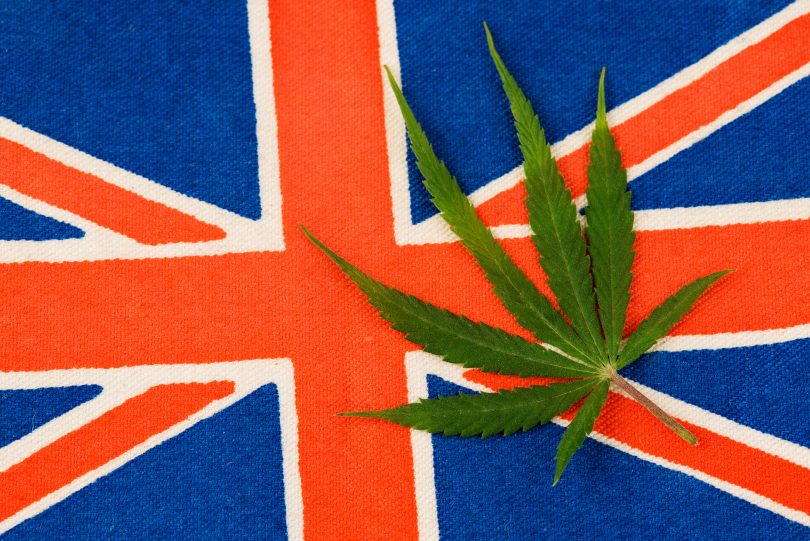
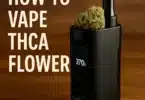





This is woefully and dangerously inaccurate about the law in the UK.
Delta-8 THC is a cannabinol derivative which means it is a controlled drug in exactly the same way as delta-9 THC.
Please correct the misleading information you have published.
Hi Peter,
I went by the information out there, and nowhere is there a direct statement that delta-8 is illegal. In fact, the only thing I found was a controversial legal topic. While you are correct about the first part, you forget the industrial hemp loophole, and the ability to source products from hemp legally so long as the THC level from the sourced hemp is below .2% In this way, it’s legal. This really is the same issue in the States. Some would point to the DEA rule to say it’s illegal. Others would point to the 2018 Farm Bill and say it’s not. The lack of specific mention of delta-8 in their laws – much like in America – makes it difficult to say. I see absolutely no official legal mandate here that would tip it in either direction for sure. Which, I imagine, is why all the retailers selling delta-8 products haven’t been shut down. It would be a legal battle. If I missed something (which certainly happens), I’m happy to check out any other information. But as of yet, the definition you’re showing, doesn’t invalidate the legal gray area, or provide a 100% proof of UK law.
No, there is nothing specific but there is the catch-all “derivatives of cannabinol” so delta-8 is controlled as are any of the mainly theoretical delta-10, delta-11, etc.
It’s the same as so-called ‘CBD flowers’ which are under the catch-all term ‘cannabis’. They’re illegal irrespective of their THC content.
Believe me, if we could find a way round the Misuse of Drugs Act 1971 we’d have found it a long time ago. And if that doesn’t get you, the Psychoactive Substances Act 2016 will, which prohibits any psychoactive substance (with a few exemptions such as coffee). So that rules out tetrahydrocannabivarin (THCv) as well!
Unfortunately, none of this is standard law. It’s you arguing a side, just like the other side can be argued as well. Which is why this is the type of thing that can end up in court. As long as you can source it from the ‘legal’ THC in hemp, and it isn’t specifically mentioned, it’s not an open-and-shut legal matter. Unless you want to make the statement that this can’t be argued in court, it remains gray area as long as two differing laws allow two differing things. Your definition is correct, but you manage to keep forgetting that industrial hemp with up to .2% THC is legal, and that delta-8 can be sourced from this THC. Regardless of definitions of THC, the THC in hemp is technically legal. And that would make delta-8 sourced from it, legal as well. Your definition is only one side of the legal issue, and I still see nothing that would give you a bulletproof case in court.
Flowers are flowers, every government makes its own stipulations about what parts of a plant can be used, or in what form the plant can be legal or illegal, and the laws rarely are consistent or make sense. Whether the flowers are illegal or not, CBD oil certainly is legal, and that too would go under the catch-all term of ‘cannabis’. You can bring up as much legislation as you want, but the whole point is that the legislation you’re bringing up, goes against other laws. So it’s not about what the Psychoactive Substances Act 2016 says, its about the legal quandary created by these laws against the laws that govern industrial hemp. The whole idea of the ‘industrial hemp loophole’, is that it creates a legal loophole.
So, I’ll just repeat this part one more time, unless your point is that this is an open-and-shut case in court, in which the argument I’m making won’t be heard because it so directly breaks a stated law, this remains legal gray area.
*If I’m horribly wrong, and a lawyer would like to weigh in, I am more than happy to get a good update.
Sarah, I am very concerned that instead of altering your dangerously misleading article you are bickering with me over what is in black and white in statute.
It’s got nothing to do with “arguing a side, just like the other side can be argued as well” and this demonstrates just how poor is your understanding of the law that affects the UK.
Here, THC is not legal when it is from industrial hemp. You are confusing what has happened in the USA with the Agriculture Improvement Act of 2018 (the ‘Farm Bill’) with the longstanding law from 1971 in the UK, the Misuse of Drugs Act. t’s here, read it before you dig yourself deeper: https://www.legislation.gov.uk/ukpga/1971/38/contents
Industrial hemp with up to 0.2% THC is NOT legal. That is the limit in the growing plant. Once it has been harvested it is cannabis which is illegal irrespective of its THC content. The only parts that are legal are the stalk and the seeds. All flowers and leaves remain a class B controlled drug.
So your claim that this is a grey area is 100% FALSE.
I’m not quite sure what an American is doing trying to teach the British what their laws are! I’ve been in this area for more than 40 years. I don’t like the prohinitive nature of our law and I work hard to get it changed but this IS the law.
Please stop misleading your readers.
Industrial help is the growing plant… how its used is what you’re talking about, but that’s different from what the plant is. However, for plants termed ‘industrial hemp’, that amount of THC is legal. It’s in all documentation. Now, it doesn’t mean that people are ‘supposed’ to consume it, but if the laws were that cut and dry, it also wouldn’t be sold (delta-8 products). If it were 100% illegal, every one of those operations would be shut down, but they’re not. Industrial hemp loopholes can be seen all over the world, this is not the first time. And yes, it’s actually quite similar to the US where there are also inconsistent laws. The US also has documentation completely illegalizing cannabis. But then there are other laws, like the Farm Bill, or laws specific to a state, which open up holes. This isn’t new, and it’s always considered legal gray area.
You are, in fact, only debating a side of a subject, as you are most certainly not showing any legal documentation specifically mentioning it, or its legalization status. The simple fact that it’s not mentioned creates legal gray area, right there, and people fight over this stuff in court all the time. Even if there is a law, because laws don’t always gel together.
I will make this statement again, please pay attention: If it can be argued in court over legality, it’s legal gray area. So unless you’re saying no court would hear this case, you’re just not correct on the absoluteness of the legality.
Most importantly, the only thing you’re doing is pointing to a set of laws that only provide one side to the debate. Yes, I get they exist, but so do industrial hemp laws. And while one argument could, in fact, be that the legislation covers illegalization, the OTHER argument is that delta-8 isn’t specifically mentioned, it’s not sourced from high-THC cannabis, and can be sourced legally from industrial help. In fact, apart from you showing me the stated law, you seem to be able to show me literally nothing else from UK laws, government statements, or politician standpoints that would actually make your case. If it were so very clear, why can’t you show me any other piece of documentation backing it up? I never said the law illegalizing it didn’t exist. I said that contradictory laws open up the door for debate.
I find it concerning that you think I should alter an article because you have an opinion you cannot back up. Show me where the government or a politician made a statement clarifying this (and yes, clarifications are made literally all the time because of these gray area cases, and laws that don’t fully cover subjects). Like the DEA’s Interim Final Rule…that was a clarification. And even that clarification hasn’t gotten rid of the gray area. So, no, unless you provide me with something more than food for debate, I will not change the article. I need to see a clarification of the two laws that states delta-8 is illegal. Do you have that? Probably not as it doesn’t exist.
It’s not my opinion, it’s fact and there is nothing “grey” about it. Read the law.
That you persist in publishing dangerously inaccurate information when the facts have been brought to your attention says everything that needs to be said about your ‘journalism’.
Consequently I’ll waste no more time on you.
It is your opinion.
Where is the link to your clarifying information apart from the law? Because without it, it can only be your opinion.
That you persist in pushing me to edit my work in favor of your dangerously inaccurate information when facts have been laid out for you, says quite a bit about your professionalism and knowledge of your own field. Show me the current legal clarification, because you are wasting my time. And insulting me does nothing to cover for the fact that you have no legal clarification to point to.
I would be a horrible journalist if I updated this based on your baseless argument with no supporting evidence.
Hi Sarah, having read your article I’m curious of who Peter Reynolds is and how you’ve gained your understanding of uk law. Great article
Peter Reynolds is a guy who responded to my article. I gain my information by researching laws and legal sites.
Peter Reynolds is president of the UK’s longest-established cannabis law reform group, CLEAR and an expert in the science, medicine, law and politics of cannabis.
CBD Testers has produced useful content in the past but its regular inaccauracies and misleading reporting about UK issues means that we have ceased to share its articles and we can no longer recommend it as a trusted source.